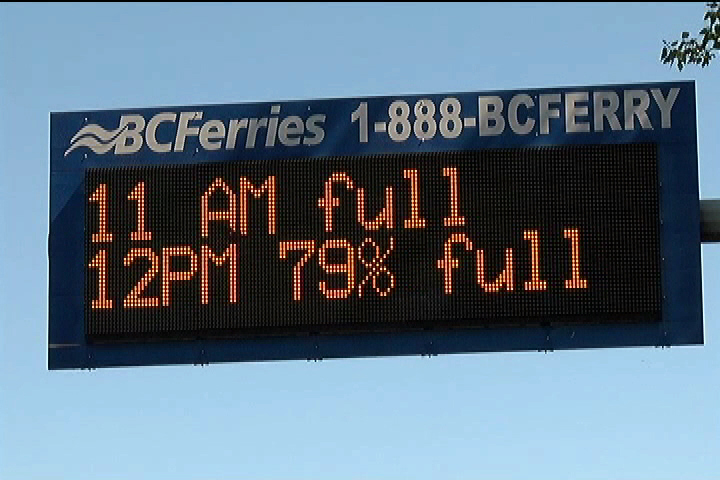

File photo.
BC Ferries says net earnings are down in the first quarter of its fiscal year compared to last year, although it is reporting the highest vehicle traffic ever recorded.
The corporation says passenger traffic levels were the highest it has seen in over 20 years and net earnings for the first quarter of fiscal 2019 is $6 million.
That figure was $17.3 million for the same period last year.
BC Ferries said net earnings decreased in the quarter “due to BC Ferries’ contributions to the April 1 fare reductions as well as more sailings at popular sailing times.”
At the start of the fiscal year April 1, fares on all routes were reduced 15 per cent, with the exception of the three Vancouver Island-Metro Vancouver routes.
Operating costs were up 7.8 per cent in the quarter to $209.9 million as 352 round trips were added, increasing labour, fuel consumption and training costs.
BC Ferries says those added sailing were for the increased demand, Horseshoe Bay schedule adjustments and re-introduction costs for the Spirit of British Columbia.
Upgrades to the vessel included an engine conversion to operate on liquefied natural gas to cut emissions.
BC Ferries saw a 1.5 per cent increase in revenues of $229.7 million thanks to increased traffic levels, but offset by lower average costs per passenger and per vehicle because of fare reductions.
Those reductions included a seniors’ discount, which increased to 100 per cent for travel Monday to Thursday, which is being partly funded by the company over two years.
“Traffic across the system has grown and we are working hard to deliver the travel experience our customers expect,” BC Ferries’ president and CEO Mark Collins said in a release.
“However, at these unprecedented traffic levels, we know that some travellers and communities are seeing some delays. To address this, we’ve added even more extra sailings this summer for the increased demand while maintaining key operational targets like safety and on-time performance.”




